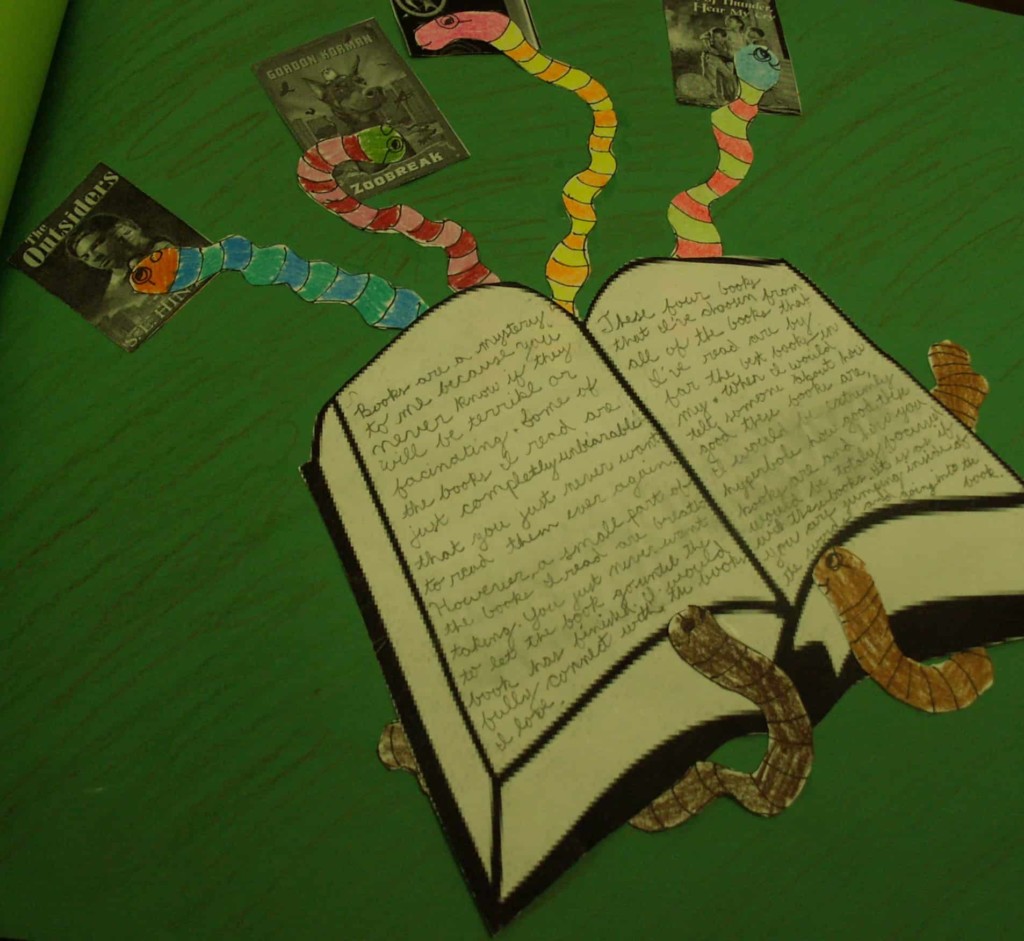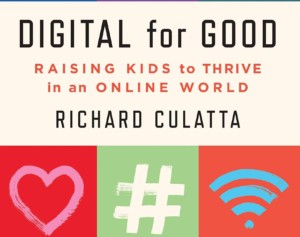Word Nerds Get Digital

You definitely know you’re a word nerd when you fall hopelessly in love with an essay called “The Joy of Sesquipedalians,” by Anne Fadiman, from her collection Ex Libris: Confessions of a Common Reader. Fadiman begins her essay with a panegyric to Wally the Wordworm, the dictionary devouring invertebrate invented by her father. Sometimes I like to imagine the delight of the young Mistress Fadiman if she had encountered Wally’s gustatory perambulations in the digital age.
Ways of Making Meaning
Students these days master in no time how to use dictionary.com for clarifying definitions and working out odd spellings their auto-correct features can’t fathom. If they own a digital reader, students quickly become accustomed to the finger-tapping tattoo of accessing a word’s meaning within a digital text.
These ubiquitous ways to ingest the nuances of language may now be as second nature for our students as dexterous manipulation of their thumbs to text a magnum opus. And if they are really in the know, our students may even have picked up the trick of truncating a Google search for a tricky definition by typing “define:” and then the word in the search bar.
This is only vocabulary sustenance, however. The true word nerd is hungry for more.
Hosting Word Banquets
As a teacher of future Wordworms, I’m not satisfied with students who merely possess the basic skills of putting together an ordinary meal from the words they encounter. I want them to host word banquet tables weighed down and brimming over with the vast delights of language.
To prepare such feasts of wordsmithery, students might use Lingro to transform any page from the web into a vocabulary enriched digital text. Lexipedia, one of many visual word reference sources, can demonstrate the organic nature of language and the inter-connected nature of words as they link one course of words to the next.
Envisioning with Image Banks
Words need a visual context as well – and I’m sure Wally the Wordworm had a special place in his digestive system for the pictures and diagrams that filled out the meanings of the words in the dictionaries he consumed in the last century. Today students likely will first explore a word’s meaning in Google Images or Youtube before thinking about picking up a dictionary.
So I’ve long had the practice of having my students create visual glossaries of vocabulary lists to help the words they learn come alive. Shahi (from Princeton) takes this even further by merging Wictionary with Flickr images (teachers of younger students would do well to test their searches first and reinforce standards of appropriateness before turning their students loose with this tool).
Digging Deep and Considering Context
One of my favorite activities for introducing students to the wondrous delights of language is to assign a research project on the meaning of a single word. Thus, just as Julia Child might explore the enormous possibilities in one ingredient, say, an egg, I might have a student investigate all the permutations of a word like caravan, from its origins in Persian and its association with the Silk Road to its use by a contemporary upscale travel agency.
Similarly, I’ve introduced students to “word exploration” blog posts as a means for getting them to dig deep into the meaning of a difficult text. Last year, my 6th-graders blogged about the challenging words they found in Charles Dickens’s Christmas Carol – and crowd-sourced their learning to get a lot more out of the text than they might have otherwise done. I’ve also introduced my students to tools like Vocaroo and Fotobabble for creating mini-podcasts to share their understanding of words in context from Shakespeare’s Othello and A Midsummer Night’s Dream.
I’ve also encouraged all of my students to use vocabulary.com, which pulls together up-to-date contemporary examples of any word you might wish to explore. Its blog posts provide terrific models for “word explorations” – not to mention delectable samples of writing as well.
Leveling Up
Not surprisingly, as a proud word nerd, I am a great lover of word games. I know that old school word searches and crosswords still hold some sway with today’s students, but I’ve always sought something more, well, meaty. I watch my husband rack up points in
Words with Friends with obscure words he never really uses, and I shake my head. What’s the point of playing with words if you can’t relish their nuances of meaning?
Yes, I have been known to play Free Rice with students who have been assigned to a lunch detention for not completing their homework. So I’m excited by the challenges and quizzes on vocabulary.com, which allow students to earn points and badges for true mastery of language. This looks like real learning to me, and I’m guessing feels like real gaming to students.
Where’s Wally?
 I want my students to be hungry for words and to develop the gastronomic sensibilities of true word-lovers. Thus, it’s my job to find the best ways to pique the linguistic appetites of youngsters and send them out into the digital world to learn even more. Hey, Wally and other Wordworms out there, let’s feast!
I want my students to be hungry for words and to develop the gastronomic sensibilities of true word-lovers. Thus, it’s my job to find the best ways to pique the linguistic appetites of youngsters and send them out into the digital world to learn even more. Hey, Wally and other Wordworms out there, let’s feast!







0 Comments
Leave a Comment
Your email address will not be published. All fields are required.